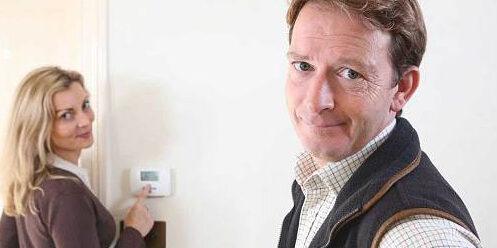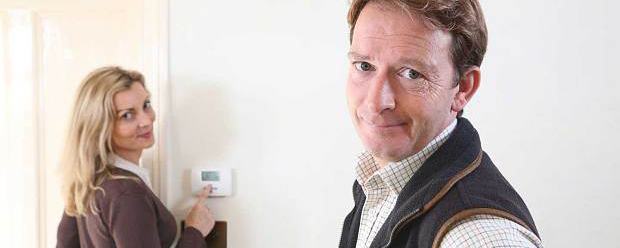Zoning: Is it the right solution for your home?
Zoning your heating and cooling is not something most homeowner’s have considered. However, if you have ever experienced the following issues or complaints with the comfort of your own home, it might be the perfect solution for you and your family.
- The kitchen is overly warm while the bedrooms are super cold.
- The upstairs is hot and in the summer it’s downright stifling.
- The basement is too humid and yet still somehow cold. Cold and clammy? No thanks.
- The craft room or man cave doesn’t need to be heated and cooled all the time, but wouldn’t it be nice to have it be the right temperature when you want to use it?
Do you feel like you fight over the thermostat all the time and no one is ever truly happy with the temperature of the room they are currently in?
Heating and cooling your home is solidly based on the laws of science. And science dictates that air move in a certain way. If you have ever felt a draft at windows or doors in the winter, then you are feeling in a very real way the way hot and cold air moves when left to their own devices. A 2 story home, for example, will often have a thermostat downstairs near the shared living areas. This means that the thermostat turns off when your living room is 68 degrees. But upstairs it can still be 80. Now the downstairs is freezing, the upstairs is barely manageable, and the system is working harder and longer without actually making the house comfortable.
But what can you do? You can’t change physics! And having multiple systems can be expensive both in original purchase costs, utilities, and maintenance.
Zoning is the answer
The air in your home is not moving magically from one room to another. It is moving through usually hidden ducts in your ceilings, walls, and floors and coming out the registers. Zoning is putting little doors, or dampers, into your ductwork that can opened and shut so that you are in greater control of where your air is flowing.
For example, do you have an upstairs that is always warm in the summer? You could close the damper and divert your cold, air conditioned air upstairs while leaving the temperature in the main living spaces mainly alone. This means that the entire house is a comfortable temperature. In the winter, a damper to kitchen might be turned off so that the cooking stove and oven make it cozy, while your furnace makes the rest of your home cozy. Have a mother-in-law suite which needs to be substantially warmer than the rest of the house year round? Zoning and bypass dampers could be the solution for this as well.
Zoning isn’t always the answer
Installing a zoning system is usually substantially cheaper than installing a second new system. And the upkeep is also less expensive. However, zoning is not always the solution. Since duct systems have to be re-engineered and dampers and additional thermostats installed, it can make sense to make other decisions. For example, maybe your home would be better suited to ductless mini-split HVAC systems. Perhaps you just have a cold room in the winter that could be taken care of with a heat producing beautiful gas fireplace or stove. Or maybe in your case, a second system is the right solution.
How can you know what is best for your family? Our certified comfort advisors will come out free of charge to inspect your home and listen to what you want the comfort of your home to feel like. Best of all? The advice is free. We are so confident that we can find a solution for your family we will come and give you your options (including pricing) for free.
Summary
- Zoning your home saves energy costs
- Zoning can prolong the life of your heating and cooling system
- Zoning your home provides better control and comfort
- Zoning can be initially costly, so make sure it’s the right choice for your home
One last thought, I have a mini van and it has 3 thermostats in it. The driver, the passenger, and the backseats. And that’s in a tiny van! Having multiple zones and thermostats simply makes sense in a much bigger and broken up house.
Call Today 1-800-247-6180 to find out if zoning is right for you.




